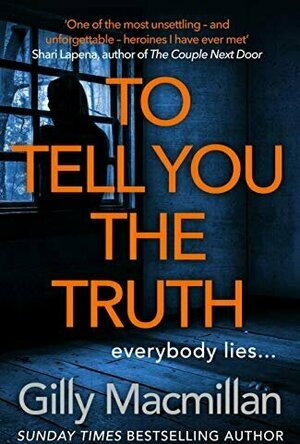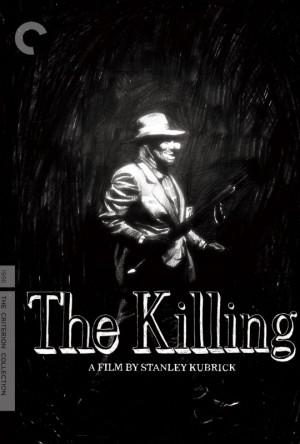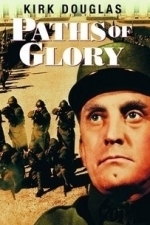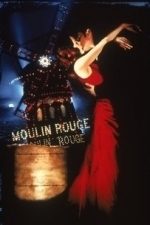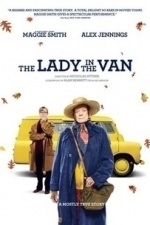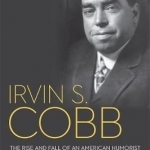
Irvin S. Cobb: The Rise and Fall of an American Humorist
Book
"Humor is merely tragedy standing on its head with its pants torn." - Irvin S. Cobb Born and raised...
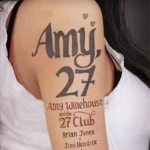
Amy, 27
Book
The death of Amy Winehouse at the age of 27 was a tragedy. She was one of the brightest music stars...
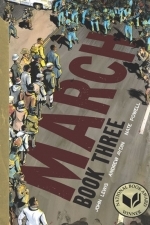
March: Book Three
John Lewis, Andrew Aydin and Nate Powell
Book
Welcome to the stunning conclusion of the award-winning and best-selling MARCH trilogy. Congressman...
Politics social issues

Travel Writing: Expert Advice from the World's Leading Travel Publisher
Book
Lonely Planet: The world's leading travel guide publisher* Written by a pre-eminent travel writer...
Kristy H (1252 KP) rated To Tell You The Truth in Books
Oct 8, 2020
"After all, what kind of person creates a character who walks right out of their books and into their life? He would think I'd lost my mind."
I absolutely adore Gilly Macmillan and her books, but this was not one of my all-time favorites. It's still good, though, and twisty, and I will admit that I didn't guess the (rather bizarre) outcome. However, the ending leaves much to be desired and does not wrap everything up, which left me frustrated. (And seemed to kick off a trend in my recent thrillers, where things end with plot pieces left hanging--I'm not okay with this.)
Lucy is an unreliable narrator extraordinaire--ever since she was small, she's had a best friend named Eliza. Why yes, Eliza happens to be the name of her fictional character, as well. Lucy talks to her imaginary friend, who seems to have untold power over her. If this sounds weird and creepy, it is, and Macmillan does a good job with the eerie oddity of it all and allowing us to wonder if we can trust anything that Lucy--or Eliza--say. Knowing who and what to believe is certainly a central theme here.
Dan, meanwhile, is absolutely despicable, and I was not too sad when he disappeared, honestly. The story alternates between present-day, with Lucy's point of view, and the past, around the time Teddy disappeared. It's certainly compelling. All in all, I would have probably rated this 4-stars if there had been a better ending, versus one that felt rushed and forced, without tying up all the loose ends. This is still a good, atmospheric thriller, with plenty of twists. 3.5 stars. And if you want to read more from Macmillan, I highly recommend The Perfect Girl or her Jim Clemo series--all books that I adore.
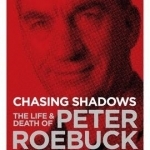
Chasing Shadows: The Life and Death of Peter Roebuck
Book
Part biography, part personal reflection and part investigation, Chasing Shadows: The Life And Death...
Pat Healy recommended The Killing (1956) in Movies (curated)
Pat Healy recommended Paths of Glory (1957) in Movies (curated)
BankofMarquis (1832 KP) rated Moulin Rouge! (2001) in Movies
Apr 15, 2020
Yes...it's that good.
Set at the turn of the century (the 19th to the 20th century) during the Bohemian Revolution in Paris, MOULIN ROUGE tells the tale of the...you guessed it...the Moulin Rouge theater/club where a young writer (Ewan McGregor) gets pulled into the lives of the artists and others trying to make a living, falling in love with a young courtesan, Satine (Nicole Kidman) all under the watchful eye of Harold Zidler (Jim Broadbent).
But it is not the story, but the telling of the story that sets this film apart. It is chaotic, wild, colorful, sexy, grimy, loving, alcoholic and spectacular - all things that not only describe this film, but the Moulin Rouge itself. Directer Baz Luhrman really shines in his vision of this picture that juxtaposes colorful sets and costumes, unique characters and songs and dance and music that tells the tale in a a unique way.
Oh...did I mention that most of this music is MODERN music? From Elton John's YOUR SONG to Roger's and Hammerstein's THE SOUND OF MUSIC to LADY MARMALADE to the ingenious use of Sting's ROXANNE (in a tango scene no less), this film is an amalgam of song that fits each scene perfectly. At what first seems incongruous, upon further viewings, the songs are slyly picked to accent the emotions and dramatic purpose of each scene.
As for the acting, McGregor and Kidman are beautifully cast (pun intended) as the young lovers. Their good looks radiate across the screen and I thought they had great chemistry. John Leguzamo and the other "Bohemians" pop in and out and are uniquely outrageous without being annoying. Richard Roxburgh's antagonist, "the Duke", came across in this viewing as not nearly as annoying as I have found him to be previously. Maybe there is more to this character/performance than meets the eye.
But it is Jim Broadbent's portrayal of the Master Shoman, Harold Zidler, that steals this film for me. He is a cunning and ingenious showman who (more than once) proves that he will stop at nothing for the "show to go on", but there are many notes to Zidler, at once in control and at the same time trying to KEEP control of events spiraling out of his control that actually shows a desperate man doing whatever he can to survive.
Add all these ingredients up and you have a film that gets deeper and richer with each subsequent viewing. I have yet to get tired of this film - and I am looking forward to the next time I immerse myself into this world.
Letter Grade: A +
10 stars (out of 10) and you can take that to the Bank(ofMarquis)
Movie Metropolis (309 KP) rated The Lady In The Van (2015) in Movies
Jun 11, 2019 (Updated Jun 11, 2019)
With a dull, mild curiosity.
Despite being from the viewpoint of two Alan Bennetts, described as one being the writer and the other living the life, the main character is Miss Sheppard, the lady in the van. The film insists that we should be interested in her mysterious life, her past as a pianist and a nun, and why she chooses to live in the van, but throughout most of the film I was only thinking “Oh, let’s just go back and hear Alan Bennett be cynical some more.” The words are witty and sharp, but it’s mostly said about things we don’t care about. Miss Sheppard is a flat, mostly dull character, and the audience is unwillingly handcuffed to her.
The highlight of the film is its acting, with the cast being a veritable who’s who of Britain’s finest talent, and James Corden. What dimension Miss Sheppard has is provided almost entirely by the volatile yet vulnerable performance by Maggie Smith, and Alex Jennings is as real an Alan Bennett as the actual Alan Bennett. Even in the small roles, everyone from Roger Allam to Gwen Taylor manage to force themselves to shine. The only bad performance is from, of all people, Jim Broadbent, who pops up to antagonise Miss Sheppard but appears less like a real human being and more like a cartoon supervillain. For a second, I thought the character’s name was Baron von Drakkhen.
But great players cannot save a bad game, and the story of the film is flat, predictable and boring. If you don’t immediately care about Miss Sheppard, then the film becomes more tedious and lifeless by the second. I guessed long before the end the mystery behind Miss Sheppard, but even if I hadn’t I would still have been bored due to the lack of any interest. The film believes that the existence of a mystery to be motivation enough to solve it, which just isn’t the case; I don’t know what John McCririck had for breakfast, but I’m not going to stare at his stools to find out.
Not helping matters is a very by the numbers direction by Nicholas Hytner. While not incompetent, there’s very little in the way of style or flair without being casual. The only parts that show any sort of imagination are the fourth wall breaks, but the best only happen towards the end. It’s a shame that the potential of having two Alan Bennetts and seeing the film from the perspective of the writer only starts to be explored as the film is drawing to a close. Otherwise, a robot could’ve directed this film.
Alan Bennett is a highly praised writer, and rightfully so, but The Lady in the Van just isn’t his best. The above-average but by no means stellar script is tied to a plot as lifeless and sluggish as a particularly lethargic sloth. If you’re really hurting to see Bennett at his best, it’d be a lot cheaper and a lot more entertaining to rent The Madness of King George or The History Boys or even one of The Secret Policeman’s Ball’s, plus you can order some pizza from your sofa. Otherwise, The Lady in the Van, unlike the real Miss Sheppard, can very safely be ignored.
https://moviemetropolis.net/2015/11/19/like-a-particularly-lethargic-sloth-the-lady-in-the-van-review/
